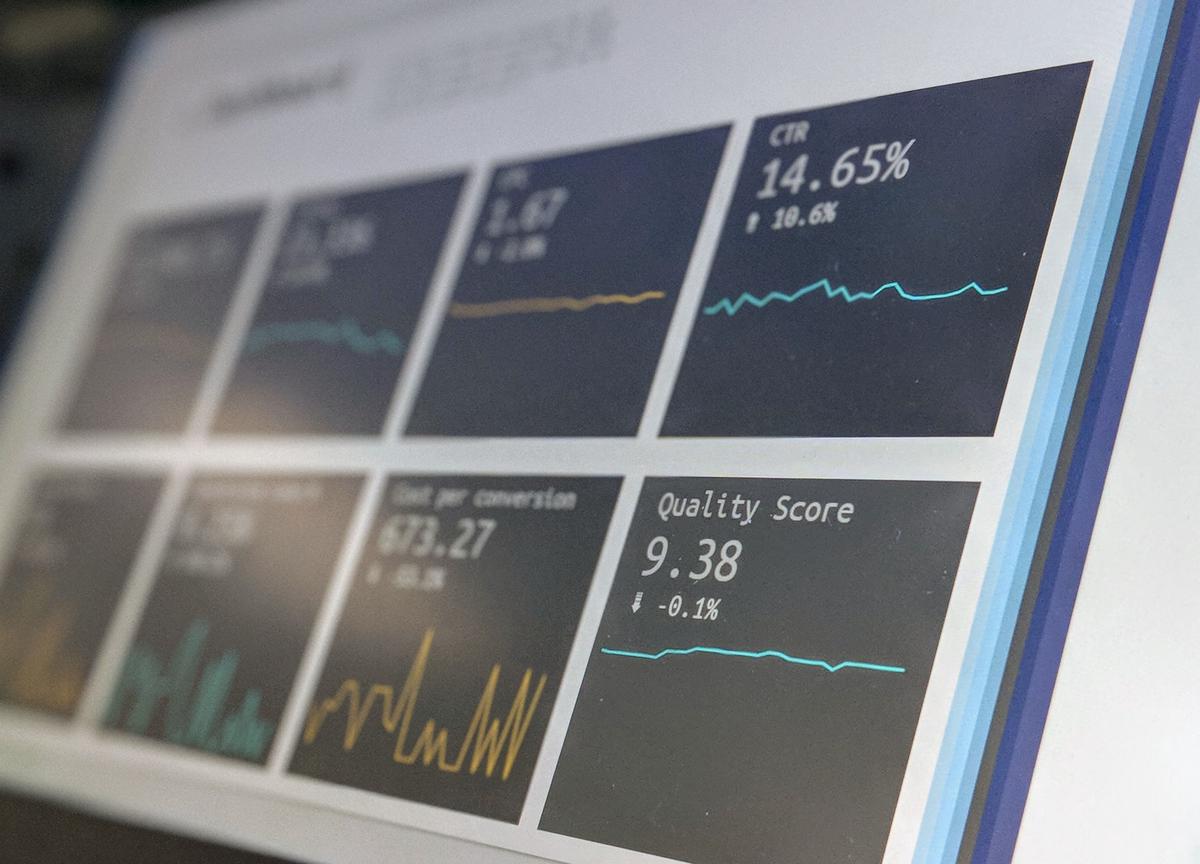As we continue to acclimate to a digital-centric world, the critical role of a certified cybersecurity analyst becomes more evident. Stepping into this pivotal role demands not only enthusiasm for technology but also an in-depth understanding of the landscape that blends emerging technologies and extremely sophisticated threats. With the broadening scope of digital infrastructure, businesses, governments, and organizations across the globe require skilled professionals adept at safeguarding their networks and systems. This discourse digs deep into the practical applications, technological tools, and certification processes required to become a successful cybersecurity analyst while emphasizing the importance of their role in the existing digital landscape.
The Importance and Role of a Cyber Security Analyst
The world of technology has never been more exciting. With innovations designed to make our day-to-day lives effortless and dynamic, there’s a profound enthusiasm for what the future might bring. However, the swift pace of technology adoption isn’t without its fair share of risks. Hence, the importance of a certified cybersecurity analyst in today’s tech-driven world can never be overstated.
A certified cybersecurity analyst operates as an organization’s first line of defense against the darker side of the internet. These IT professionals keep a vigilant eye on the systems, ready to parry threats and neutralize cyber-attacks of any kind, thereby ensuring the integrity and safety of an organization’s data.
1. Proactive Threat Assessment & Defense
A critical function of a cybersecurity analyst is to proactively identify vulnerabilities and act swiftly. This isn’t simply about responding to attacks but about mirroring the mindset of would-be attackers, foreseeing risks, and fortifying the systems accordingly. Anticipating these risks allows organizations to implement the necessitated controls before the occurrence of any dangerous incident. A certified cybersecurity analyst uses state-of-the-art tools and techniques, combined with a seasoned strategic mindset, to make them critical in this area.
2. Policy Development & Enforcement
Every organization needs to create, maintain, and enforce a robust cybersecurity policy. It’s not just about technology but the humans using it, therefore, stripping loopholes for cyber-attacks necessitates solid policies. This is another sphere where certified cybersecurity analysts prove their worth. They are skilled at developing holistic policies that address technology, people, and processes, making their input indispensable in building resilient systems.
3. Recovering from Cyber Attacks
Despite best efforts, breaches can still happen – this is an unfortunate reality in our interconnected world. However, a certified cybersecurity analyst knows how to orchestrate a successful recovery. From identifying the source of the breach to measures for preventing recurrence, a certified analyst not only resolves the issue but extrapolates learnings to strengthen the entire security system.
4. Constant Technological Evolution
Present-day cybersecurity threats are not the same as they were a year ago. They morph rapidly, acquiring new forms and structures. A certified cybersecurity analyst possesses a deep understanding of past and present threats but also stays abreast of the future landscape. This constant evolution in knowledge and skill, driven by official certifications, is what makes them an irreplaceable asset to any tech-savvy organization.
So, while we continue to marvel at the amazing power of technology and its boundless potential, let’s maintain an acute awareness of the importance of cyber hygiene and the unrivaled value of a certified cybersecurity analyst. In our quest for automated efficiency, their role as guardians of our cyber world grows increasingly essential, and their expertise is proven to be not just important but undeniably indispensable.

Understanding the Cyber Security Analyst Certification Process
The Blueprint to Becoming a Successful Cybersecurity Analyst
Becoming a certified cybersecurity analyst on the frontline of technological defense is an audacious but worthwhile endeavor requiring a combination of education, experience, and baggage of relevant certifications.
First and foremost, one should aim for a strong educational background. Typically, a bachelor’s degree in cybersecurity or related fields such as computer science, information technology, or programming lays a great foundation. Steps can be taken further with a master’s degree for in-depth knowledge and specialization, refining skills, and empowering oneself to better combat the ever-evolving cyber threats landscape.
Post-education, it’s advisable to gain practical experience. Most successful cybersecurity analysts are not fresh out of university – rather, they have fought in the trenches, experienced the onslaught of cyberattacks firsthand, and possess a real understanding of the lurking dangers in cyberspace. Experience in the realms of IT, Network Administration, or Systems Engineering can provide invaluable insights and a broader perspective for a future cybersecurity analyst.
After acquiring some essential experience, the next step towards becoming a certified cybersecurity analyst is obtaining the right professional certifications. While there are myriad certifications out there, a few heavyweights hold considerable clout and recognition:
- The CompTIA Security+ certification, recognized as the global benchmark for best practices in IT network and operational security, is a highly recommended starting point.
- CISSP (Certified Information Systems Security Professional) certification is hailed globally as the gold standard in the field. It not only offers profound knowledge and technical skills to design, implement, and manage a best-in-class cybersecurity program but also lends considerable credibility to your growing profile.
- CISA (Certified Information Systems Auditor) labeling speaks volumes about your expertise in auditing, control, and security of information systems.
- The CEH (Certified Ethical Hacker) certificate, showcasing your knowledge to find and fix vulnerabilities, can definitely make your resume stand out.
Remember, certifications are not one-off – they require regular renewal and sometimes even continuing education credits to be maintained. This aids with staying updated and constantly sharpening skills, prime factors to flourish in this field.
Another key step is networking. Engaging regularly with peers, experts, and even beginners attending webinars, workshops, and conventions offers not only new knowledge and perspectives but also valuable connections, eventually building a robust professional network.
Lastly, developing soft skills like problem-solving, analytical abilities, attention to detail, and good communication skills are critical as a cybersecurity analyst. These skills can make the difference when communicating policies, translating tech jargon into layman’s language, or working in a team to bolster an organization’s defenses.
In conclusion, while the journey to becoming a certified cybersecurity analyst is challenging, traversing this path armed with the right education, experience, certifications, and skills can shape you into an effective, indispensable guardian of cyberspace. Jump-start this exciting career now to join the community dedicated to making our digital lives safer.

Photo by dawson2406 on Unsplash
Technology and Tools Used by Cyber Security Analysts
Staying ahead as a certified cybersecurity analyst requires an understanding of the latest technologies and tools shaping the field. This demands a move beyond the foundational theories and concepts of cybersecurity into practical knowledge and application.
Topping the list of these critical tools is Security Information and Event Management (SIEM). SIEM tools, such as LogRhythm, AlienVault, or Splunk, are invaluable as they provide real-time analysis of security alerts generated by network hardware and applications. These tools enable cybersecurity analysts to rapidly detect, analyze, and respond to cyber threats and incidents.
Cryptographic tools are an analyst’s weapon in securing data and communications. Expertise in using cryptographic software like AxCrypt, LastPass, or VeraCrypt is paramount. These tools encrypt information, rendering it unreadable to anyone without the right decryption key. They add an essential layer of security that deters both internal and external security breaches.
Digital Forensics Tools assist in gathering evidence after a cyber attack. This is a crucial part of the recovery and learning process. Tools such as Autopsy and EnCase facilitate the retrieval of lost or corrupted data, and their analysis can help in preventing similar attacks in the future.
Penetration Testing Tools are essential for any cybersecurity analyst looking to stay ahead. These tools, like Kali Linux, Metasploit, or Wireshark, simulate cyber attacks on a network to identify vulnerabilities before hackers exploit them.
Cloud Security knowledge is increasingly important as more businesses move their operations online. Familiarity with cloud security tools and platforms like AWS, Microsoft Azure, and Google Cloud Platform can give a cybersecurity analyst an edge in securing increasingly virtual spaces.
Finally, knowledge of Endpoint Detection and Response (EDR) tools is essential. EDR tools, like Carbon Black or CrowdStrike, continuously monitor and gather data from endpoint devices to detect potential cyber threats. They provide robust, real-time defenses against even the most sophisticated attacks.
Cybersecurity is a constantly evolving field. It requires analysts to update their skills frequently and stay informed about new technologies, strategies, and tools. By mastering these tools and keeping pace with technological advancements, certified cybersecurity analysts can maintain their edge in the competitive cybersecurity landscape. Continuous learning is, in many ways, the cybersecurity analyst’s most vital tool of all.

Practical Applications and Real-world Case Studies
Certified cybersecurity analysts are often considered the vanguards of the digital world. Their mission to protect crucial data and networks from malicious attacks is paramount to businesses and organizations.
To effectively realize this mission, it is crucial for cybersecurity analysts to be equipped both academically and practically. It is no secret that cybersecurity is a discipline steeped in technology; therefore, having a strong foundation in technical subjects like computer science, information systems, or data science can provide invaluable understanding. Given the nature of cyber threats, having practical IT experience, particularly in network administration and systems engineering, provides a significant edge.
Professional certifications are also an integral part of a cybersecurity analyst’s toolkit. Recognized credentials like CompTIA Security+, CISSP, CISA, or CEH serve as evidence of the analyst’s competency in various cybersecurity domains. This can often unlock new career opportunities or improve chances of advancement. However, the journey doesn’t end after obtaining these certifications – continuing education is a must to stay abreast of evolving threats and defense strategies.
The cybersecurity landscape is a dynamic, ever-changing battlefield. Being a solitary warrior here won’t cut it. Having a network of peers and industry experts can facilitate the sharing of knowledge, trends, and best practices, fostering a collaborative approach to tackling cybersecurity threats. Along with technical skills, developing soft skills like problem-solving and analytical abilities, attention to detail, and communication skills are equally crucial.
The path to becoming a certified cybersecurity analyst is filled with continual learning and challenges. However, overcoming these challenges comes with the reward of being part of an elite group of professionals making a difference in the real world.
Among the essential toolsets for cybersecurity analysts is the Security Information and Event Management (SIEM) tool. These systems offer a holistic view of an organization’s security landscape and provide real-time analysis of event data. Properly configured, SIEM tools can identify anomalies, track user behavior, and detect potential threats in advance.
Similar to SIEM, Endpoint Detection and Response (EDR) tools play a crucial role in monitoring endpoint and network events and recording the information in a central database. These tools offer continuous monitoring and response to mitigate advanced threats.
Knowledge of cryptographic tools is also indispensable. As data breaches continue to rise in numbers and sophistication, encryption remains the most effective way to achieve data security. With this knowledge, cybersecurity analysts can protect sensitive information from theft and unauthorized access.
Penetration testing tools are another vital component of an analyst’s arsenal. These tools help simulate cyber attacks on a network to find vulnerabilities that an adversary could exploit. Such proactive measures ensure that system weaknesses are addressed before they become critical issues.
Finally, this era of remote work and digital transformation has surged the demand for cloud security knowledge. Certified cybersecurity analysts with experience in this domain can enable businesses to move to the cloud securely, thus minimizing interruptions and losses.
Cybersecurity isn’t a static field; the stakes rise with every evolution in cyber threats. As such, continuous learning doesn’t just keep analysts relevant – it ensures they thrive. In this way, every modern-day certified cybersecurity analyst is making a sizable difference, transforming challenges into opportunities and consistently fortifying fortresses in the digital world.

The Future of Cyber Security Analysis
Diving straight into the future of cybersecurity analysts, artificial intelligence and machine learning innovation stand at the forefront of transformational shifts. AI-based solutions and predictive analytics tools are pivotal for analysts, offering a proactive approach to snuff out threats even before they materialize. An understanding and proficiency in these advanced technologies will become more important than ever. As AI continues to evolve, so too will cyber threats – and analysts will need to stay ahead of this curve.
To stay ahead, cybersecurity analysts must also pay attention to the fast-evolving world of quantum computing. Despite its nascent stage, quantum computing is set to revolutionize the cybersecurity landscape. At the heart of the quantum revolution is quantum cryptography, set to offer an uncrackable security system – a luxury cybersecurity analysts will love to have in their arsenal.
Furthermore, we anticipate an increased focus on privacy and data protection in the future. Regulations such as the GDPR have already made data protection a top priority, but the tech landscape is only going to see more of such requirements. Cybersecurity analysts will be critical players in organizational compliance to these regulations, ensuring adherence and mitigating possible legal repercussions.
The use of blockchain technology for cybersecurity is another area worth keen attention. Despite its association mainly with cryptocurrency, blockchain’s ability to offer secure and encrypted transactions makes it a technology with immense potential for cyber defense.
The Internet of Things (IoT) era also looks promising for cybersecurity analysts. With the number of connected devices set to hit 50 billion by 2022, IoT security will be paramount. The network complexity presented by this multitude of connected devices will require skilled analysts to ensure proper security protocols are in place and consistently monitored.
With the dawn of 5G, higher speed and increased connection densities will create new opportunities – and vulnerabilities. As businesses tap into the power of 5G to connect infrastructure and make crucial systems faster, cybersecurity analysts will be needed to protect these high-speed networks and systems from intrusion and compromise. Understanding 5G infrastructure and its associated security risks will be indispensable for cybersecurity analysts.
A trend that won’t go away is the high demand for certified cybersecurity professionals. As the threat landscape continues to grow, there will be a continued shortage of skilled cybersecurity talent. The gap between supply and demand in this profession affords existing cybersecurity professionals great job security and attractive remuneration.
Indeed, the future for cybersecurity analysts is dynamic exciting, yet laden with immense responsibility. Whether it’s dealing with the advent of quantum computing, trying to tame the ever-expanding IoT landscape, or ensuring organizations stay a step ahead of emerging threats, one thing is clear – cybersecurity is the bedrock on which technological progress will securely rest. As such, the role of cybersecurity analysts will only grow more consequential in the global push toward a more digital era. It’s a future fully loaded, engrossing, and undeniably momentous for any tech enthusiast worth their salt.

Stepping ahead, the prospects of cyber security analysis exhibit promise and opportunistic challenges. As new threats continue to emerge and innovative technologies like quantum computing, AI, and edge computing push the boundaries, the future of the cybersecurity profession is teetering on the edge of continuous evolution. The need for expertise in this field, precisely from certified cybersecurity analysts, will undoubtedly continue to accelerate. Expertly navigating this shifting landscape, these professional analysts will form the first line of defense against complex cyber threats – a role of immense responsibility in a progressively digital world.